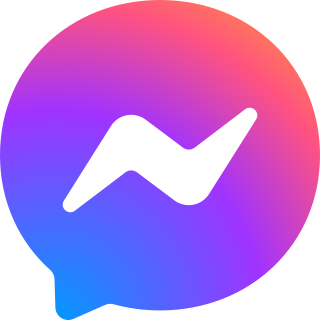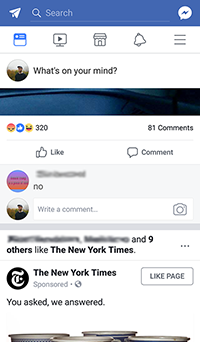Dropbox is a file hosting service operated by the American company Dropbox, Inc., headquartered in San Francisco, California, U.S. that offers cloud storage, file synchronization, personal cloud, and client software. Dropbox was founded in 2007 by MIT students Drew Houston and Arash Ferdowsi as a startup company, with initial funding from seed accelerator Y Combinator.

Inq was a social software and app manufacturer who launched two successful software products and a series of award-winning handsets. Material, Inq's personalised magazine, became the top free news app in the UK App Store and achieved a number 4 position in the US, shortly after launch. SO.HO, a social launcher developed by Inq, was also warmly received with press positioning it as an alternative to Facebook Home.

Facebook is a social networking service originally launched as TheFacebook on February 4, 2004, before changing its name to simply Facebook in August 2005. It was founded by Mark Zuckerberg and college roommates and fellow Harvard University students, in particular Eduardo Saverin, Andrew McCollum, Dustin Moskovitz, and Chris Hughes. The website's membership was initially limited by the founders to Harvard students, but was expanded to other colleges in the Boston area, the Ivy League, and gradually most universities in the United States and Canada, corporations, and by September 2006, to everyone with a valid email address along with an age requirement of being 13 or older.
Flipboard is a news aggregator and social network aggregation company based in Palo Alto, California, with offices in New York, Vancouver, and Bejiing. Its software, also known as Flipboard, was first released in July 2010. It aggregates content from social media, news feeds, photo sharing sites, and other websites, presents it in magazine format, and allows users to "flip" through the articles, images, and videos being shared. Readers can also save stories into Flipboard magazines. As of March 2016 the company claims there have been 28 million magazines created by users on Flipboard. The service can be accessed via web browser, or by a Flipboard application for Microsoft Windows and macOS, and via mobile apps for iOS and Android. The client software is available at no charge and is localized in 21 languages.

Instagram, LLC is a photo and video sharing social networking service owned by American company Meta Platforms. The app allows users to upload media that can be edited with filters, be organized by hashtags, and be associated with a location — via geographical tagging. Posts can be shared publicly or with preapproved followers. Users can browse other users' content by tags and locations, view trending content, like photos, and follow other users to add their content to a personal feed.

WhatsApp is a freeware, cross-platform, centralized instant messaging (IM) and voice-over-IP (VoIP) service owned by United States tech conglomerate Meta Platforms. It allows users to send text, voice messages and video messages, make voice and video calls, and share images, documents, user locations, and other content. WhatsApp's client application runs on mobile devices, and can be accessed from computers. The service requires a cellular mobile telephone number to sign up. In January 2018, WhatsApp released a standalone business app called WhatsApp Business which can communicate with the standard WhatsApp client.

Messenger is an American proprietary instant messaging app and platform developed by Meta Platforms. Originally developed as Facebook Chat in 2008, the company revamped its messaging service in 2010, released standalone iOS and Android apps in 2011, and released standalone Facebook Portal hardware for Messenger calling in 2018. In April 2015, Facebook launched a dedicated website interface, Messenger.com, and separated the messaging functionality from the main Facebook app, allowing users to use the web interface or download one of the standalone apps. In April 2020, Facebook released a Messenger desktop app for Windows and macOS.
Snapchat is an American multimedia instant messaging app and service developed by Snap Inc., originally Snapchat Inc. One of the principal features of Snapchat is that pictures and messages are usually only available for a short time before they become inaccessible to their recipients. The app has evolved from originally focusing on person-to-person photo sharing to presently featuring users' "Stories" of 24 hours of chronological content, along with "Discover", letting brands show ad-supported short-form content. It also allows users to store photos in a password-protected area called "my eyes only". It has also reportedly incorporated limited use of end-to-end encryption, with plans to broaden its use in the future.
Internet.org is a partnership between social networking services company Meta Platforms and six companies that plans to bring affordable access to selected Internet services to less developed countries by increasing efficiency, and facilitating the development of new business models around the provision of Internet access. The app delivering these services was renamed Free Basics in September 2015. As of April 2018, 100 million people were using internet.org.
Secret was an iOS and Android app service that allowed people to share messages anonymously within their circle of friends, friends of friends, and publicly. It differs from other anonymous sharing apps such as PostSecret, Whisper, and Yik Yak in that it was intended for sharing primarily with friends, potentially making it more interesting and addictive for people reading the updates. It was founded by David Byttow, the former lead for Square Wallet, and Chrys Bader-Wechseler, a former Google product manager at Google+, Photovine and YouTube. Bader-Wechseler left the company in January 2015, with the stated reason that the company's shift away from beautiful design and towards more minimalistic design meant that he felt he was no longer the best person to be at the helm of the company. Byttow announced the shutdown of the app and the company on April 29, 2015.
The following is a timeline of the history of the photo messaging software Snapchat.
Onavo, Inc. was an Israeli mobile web analytics company owned by Meta Platforms. The company primarily performed its activities via consumer mobile apps, including the virtual private network (VPN) service Onavo Protect, which analysed web traffic sent through the VPN to provide statistics on the usage of other apps.
Facebook Instant Articles is a feature from social networking company Facebook for use with collaborating news and content publishers, that the publisher can choose to use for articles they select. When a publisher selects an article for Instant Articles, people browsing Facebook in its mobile app can see the entire article within Facebook's app, with formatting very similar to that on the publisher's website.

Facebook's Feed, formerly known as the News Feed, is a web feed feature for the social network. The feed is the primary system through which users are exposed to content posted on the network. Feed highlights information that includes profile changes, upcoming events, and birthdays, among other updates. Using a proprietary method, Facebook selects a handful of updates to show users every time they visit their feed, out of an average of 2,000 updates they can potentially receive. Over two billion people use Facebook every month, making the network's Feed the most viewed and most influential aspect of the news industry. The feature, introduced in 2006, was renamed "Feed" in 2022.
Facebook Stories are short user-generated photo or video collections that can be uploaded to the user's Facebook. Facebook Stories were created on March 28, 2017. They are considered a second news feed for the social media website. It is focused around Facebook's in-app camera which allows users to add fun filters and Snapchat-like lenses to their content as well as add visual geolocation tags to their photos and videos. The content is able to be posted publicly on the Facebook app for only 24 hours or can be sent as a direct message to a Facebook friend.
Facebook Dating is an online dating service developed by Facebook. There is currently no web version; it is only available from the Facebook mobile app on Android and iOS.
Figma is a collaborative web application for interface design, with additional offline features enabled by desktop applications for macOS and Windows. The feature set of Figma focuses on user interface and user experience design, with an emphasis on real-time collaboration, utilising a variety of vector graphics editor and prototyping tools. The Figma mobile app for Android and iOS allows viewing and interacting with Figma prototypes in real-time on mobile and tablet devices.






